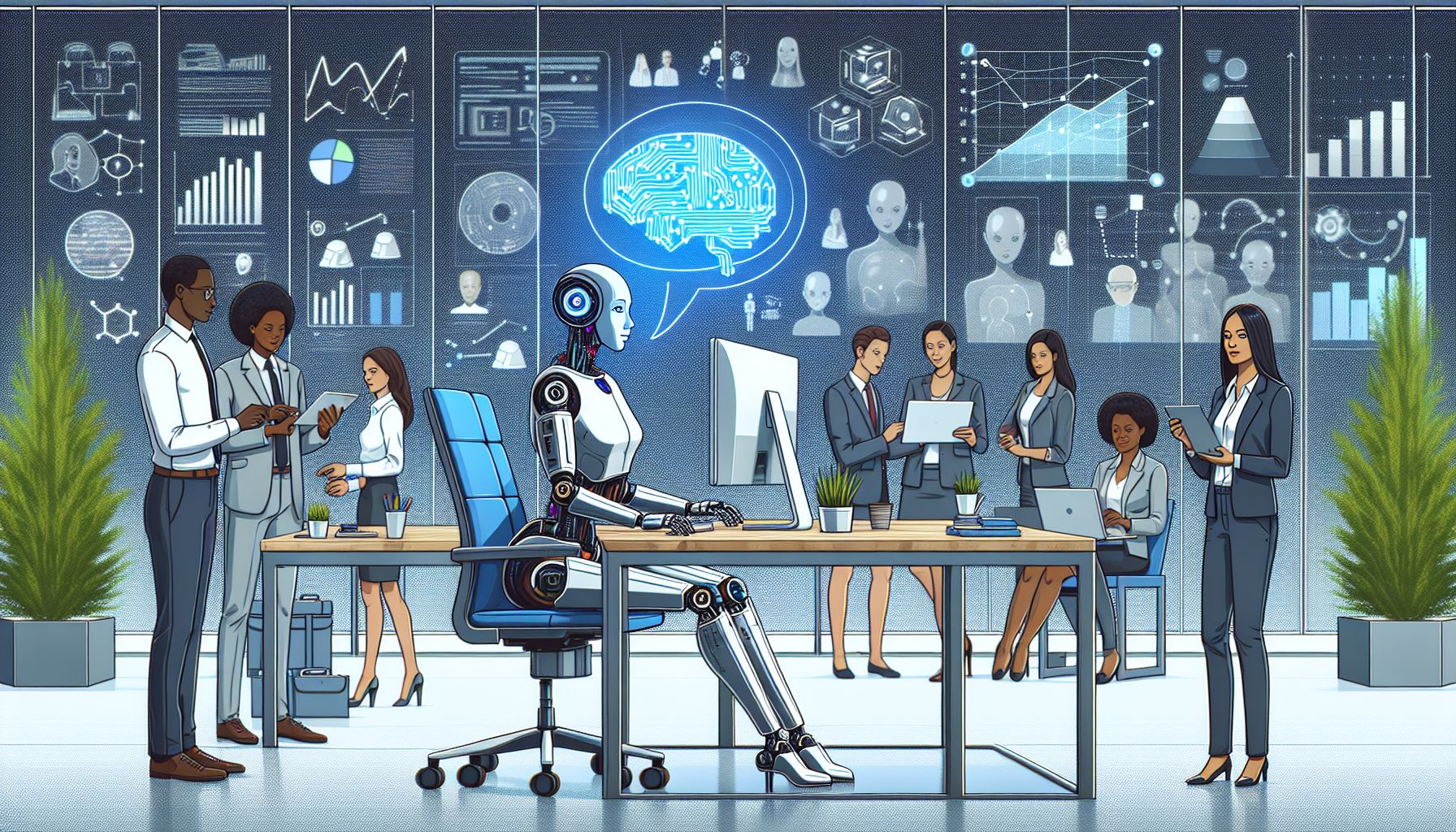
The Rise of Artificial Intelligence in Business: Exploring the Impacts and Implications
In today’s fast-paced world, business news is constantly buzzing with the latest developments and trends. One of the most significant waves in recent times has been the rise of Innovation and Commerce in artificial intelligence (AI) and its impact on various industries. From robotics to healthcare, AI has transformed the way businesses operate, and its future implications are limitless. In this article, we delve deep into the dynamic landscape of AI in business and explore the profound impacts and implications it brings.
 Artificial intelligence has emerged as a game-changer in businesses across sectors. One of the most prominent areas witnessing significant advancements is automation. AI-powered bots and virtual assistants have revolutionized customer service, reducing response times and streamlining processes. Additionally, machine learning algorithms help businesses analyze vast amounts of data and make informed decisions, leading to improved efficiency and productivity.
Artificial intelligence has emerged as a game-changer in businesses across sectors. One of the most prominent areas witnessing significant advancements is automation. AI-powered bots and virtual assistants have revolutionized customer service, reducing response times and streamlining processes. Additionally, machine learning algorithms help businesses analyze vast amounts of data and make informed decisions, leading to improved efficiency and productivity.
Moreover, AI has made significant strides in financial services. Trading algorithms driven by AI can analyze market patterns and trends within seconds, enabling traders to make profitable decisions. Similarly, AI-powered chatbots are now being used in the banking sector to assist customers in managing their accounts, handling transactions, and providing personalized financial advice.
AI’s impact also extends to the healthcare industry. From diagnosis to treatment, AI algorithms can analyze medical data and provide invaluable insights to doctors and researchers. This technology aids in early detection of diseases, allows for personalized treatment plans, and even assists in surgery, minimizing risks and improving patient outcomes.
Furthermore, the manufacturing sector has embraced AI to enhance operational efficiency. Smart factories, equipped with IoT devices, AI-powered robots, and predictive maintenance systems, enable businesses to streamline production processes, reduce costs, and ensure minimal downtime. This not only leads to increased productivity but also improves the quality of products.
The implications of AI in business are not without challenges and concerns. The first and foremost concern revolves around the displacement of jobs. As automation becomes more prevalent, certain job roles may become obsolete, leading to unemployment and socioeconomic disparities. To address this, businesses and governments must focus on upskilling the workforce and creating new job opportunities that rely on human creativity and emotional intelligence, areas in which AI struggles to match human capabilities.
Moreover, there are ethical considerations surrounding the use of AI. The potential misuse of data, invasion of privacy, and biased decision-making algorithms raise concerns. It is essential for businesses to prioritize transparency, accountability, and a human-centric approach when developing AI systems.
The rise of artificial intelligence has undoubtedly brought about profound impacts and implications for businesses. From automation to healthcare, AI has transformed the way companies operate and make decisions. However, it is crucial to address the challenges and concerns surrounding AI to ensure its responsible and ethical use. As we look towards the future, AI will continue to evolve, shaping business landscapes, and opening up new possibilities. By embracing AI with caution and prioritizing human values, businesses can drive Innovation and explore the limitless potential of this groundbreaking technology in Commerce.



